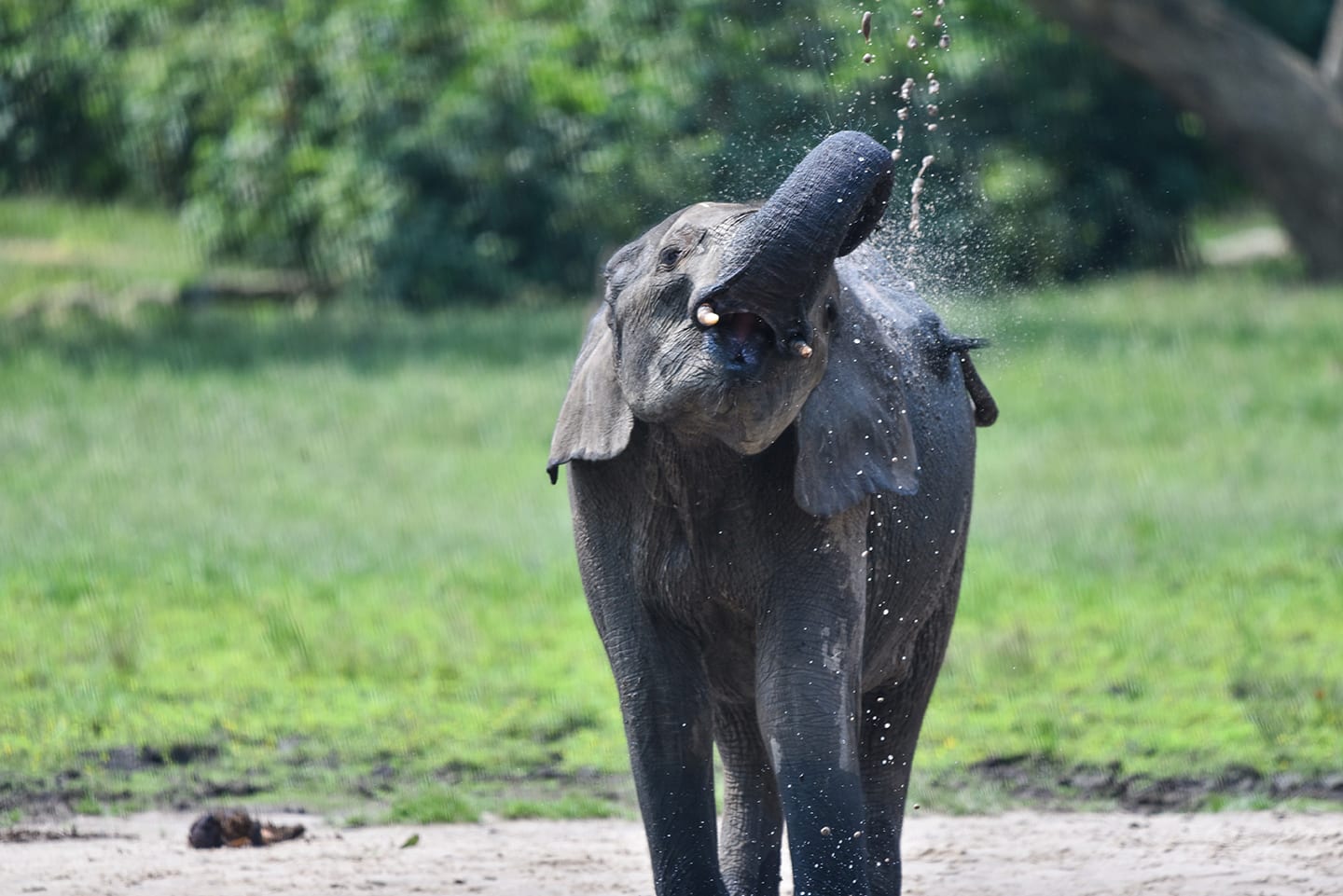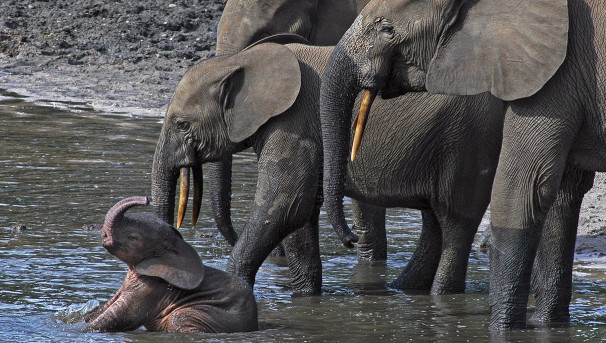A Message from ELP acoustic team member Onesi Samba
We’ve almost reached 10% of our goal! Thank you to our donors who have contributed to the campaign thus far! Your generosity has brought us closer to our goal to support our acoustic team working in Congo for another year.
We had the chance to sit down with one of the team members, Onesi Samba, to learn more about him and his journey in the conservation field:
“I developed a strong passion for nature and began taking care of animals at an early age. This passion was later reinforced when I completed a Masters in biology. My thesis focused on examining the visitation of wildlife at natural clearings (bais). After receiving my Masters degree, I worked on a project, coordinated by the Wildlife Conservation Society (WCS), monitoring elephants throughout the bais of the Batéké plateau. After this project finished, I joined the acoustic team monitoring forest elephants in Nouabalé Ndoki National Park, which has allowed me to develop a new scientific skillset and conduct research on this emblematic species of great importance to the conservation of all central African wildlife."
Next, we asked Onesi why he is passionate about elephant conservation and the use of acoustics for this purpose:
“The conservation of forest elephants occupies a special place in my life. It is a huge privilege for me to study forest elephants in their natural habitat. I am passionate about forest elephants due to their iconic species status and complex social organization. I became fascinated with the species after conducting ethological studies on them in the bais. I learned that they are very similar to humans in the way that they communicate with one another and protect their young. Elephants play a vital role in sustaining the diversity of the African forests by scattering seeds kilometers from their origins. However, our ability to monitor forest elephants in forest clearings is limited, therefore heightening the importance of acoustic monitoring as an observation tool. This type of monitoring can add to our knowledge of elephant behavior and provide additional information on elephant movement, which is essential to inform wildlife management decisions. Although elephants are vulnerable to poaching for their ivory, the acoustic data collected in Nouabalé Ndoki indicate that they are capable of adapting to hostile environments by changing their activity patterns. Therefore, the use of acoustics reinforces the protection and conservation of forest elephants. It is very important to consider acoustics as a tool in research programs that are dedicated to the protection and conservation of wildlife in protected areas such as Nouabalé Ndoki. Thank you all for your support of my work and for helping protect the elephants.”

$20
Boots on the ground
No gift is too small to make an impact. Gifts at this level can help provide our team with critical equipment such as socks, waterproof boots, and rain jackets.
$50
Equipment costs
Help provide the team with vital equipment such as headlamps, sleeping bags, and sleeping pads while they trek through the forest to protect the elephants.
$75
Food costs
Our team spends 150 days of the year traveling through rough rainforest terrain in order to maintain our acoustic grid. Support the whole team (food and per diems) for a day in the forest with a gift of this amount.
$100
Acoustic grid
Help us purchase supplies such as 256 GB SD cards and batteries to keep our acoustic grid running so we can continue to monitor gunshots and the movement of the elephants throughout the forest.
$250
Keep the team hydrated
Staying hydrated is important when covering a 1,250 square km area. Help us replace water-purification filters for the team working in the forest.
$500
Capacity building
Cover the cost of a two-week training workshop at the park headquarters in Bomassa, as ELP members continue to teach new skills to the team leaders.
$1,000
Support the team
Support two members of the acoustic team (salary and benefits) for one month of the year.
$6,000
Support the team
A gift of this amount will cover salary and benefits for one team member for the entire year.





